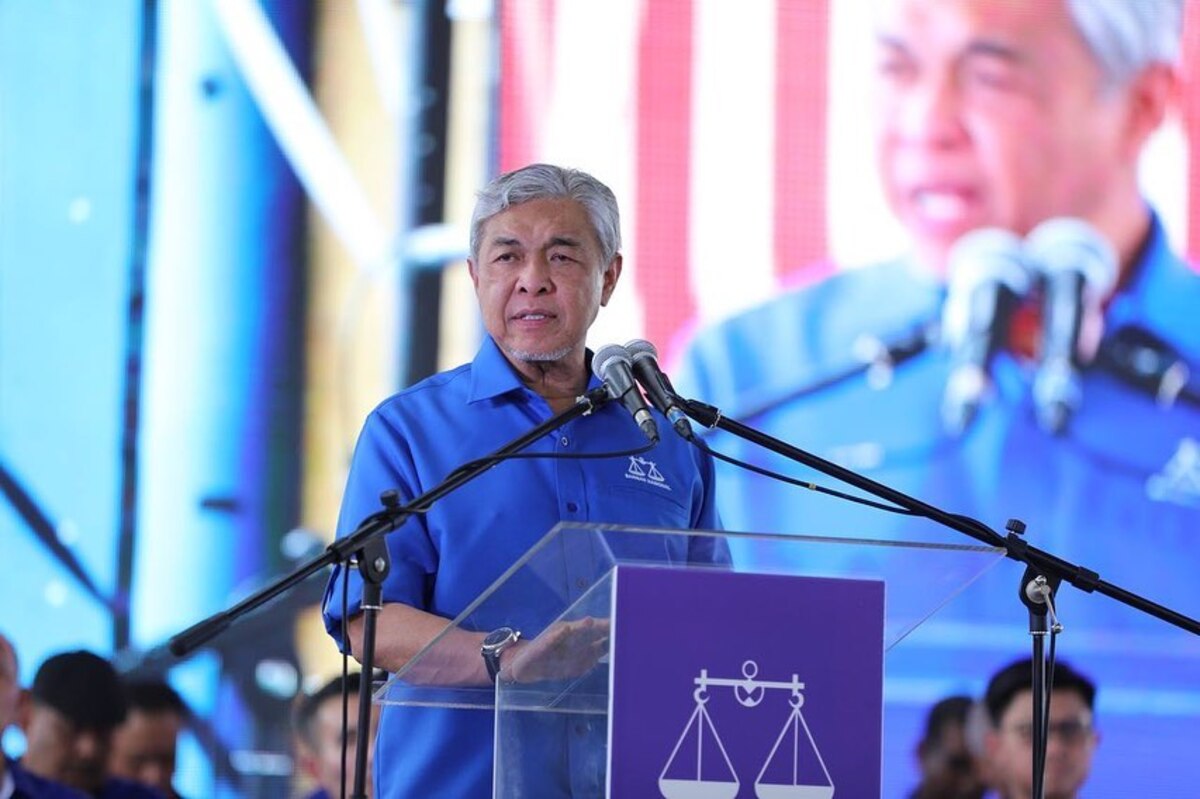KUALA LUMPUR, Nov 8 – Barisan Nasional’s (BN) election manifesto completely omits health care reform, despite Khairy Jamaluddin’s plans to table a Health White Paper when he was health minister.
BN’s “Pelancaran Pelan Amal dan Usaha” (Padu) manifesto for the 15th general election – which BN chairman and Umno president Ahmad Zahid Hamidi touted in his speech last night as a “new and fresh deal” – contains only three policy proposals under the health care section.
One of them is to double the public health care budget from RM36 billion to RM77 billion, or 5 per cent of Malaysia’s gross domestic product (GDP), by 2027.
Assuming that proposed increments are made equally every year, this means that a BN government would have to raise the Ministry of Health’s (MOH) budget by a whopping RM8.2 billion annually from 2023 while earmarking each increment – a completely unrealistic proposal if no new taxes are introduced or if subsidies are not cut.
By comparison, the MOH received an RM3.7 billion increase to RM36.1 billion under Budget 2023 that was tabled by then-Prime Minister Ismail Sabri Yaakob’s administration, but not passed before the dissolution of Parliament. The RM3.7 billion amount was the highest increment for MOH in absolute terms in the past five years.
Pakatan Harapan’s (PH) GE15 manifesto similarly pledges to increase public health care spending to 5 per cent of the GDP in five years – albeit without specifying an amount – while Perikatan Nasional’s (PN) manifesto promised to raise the health budget to more than 5 per cent of the GDP “in stages”.
Besides the 5 per cent of GDP for public health care expenditure, which was previously mooted by Khairy, BN simply pledged to also construct more specialist hospitals for specific disciplines like infectious disease and mental health, as well as to increase specialty and subspecialty training opportunities in private hospitals.
BN’s manifesto also proposed enacting an Elderly Care Act, but did not go further in proposing an expansion of professional aged care – unlike PH’s care economy proposal – beyond simply promising an RM105 million allocation over five years to non-governmental organisations (NGOs) that operate care centres for the elderly and disabled.
Khairy – who is Rembau Umno deputy division chief but is contesting the Sungai Buloh parliamentary seat, a PH stronghold, in GE15 – had spent months talking about health care reform during his time in office as health minister under Ismail Sabri’s government.
Under his leadership, MOH held a Health Policy Summit 2022 last August to discuss with the medical fraternity about reforming Malaysia’s unsustainable health care system.
At the Health Policy Summit, Khairy proposed mainstreaming health across all ministries’ budgets to address the social determinants of health; devolving service delivery from MOH in order to focus on public health surveillance, policy, and regulation, among others; and decentralising public hospitals so that they can be run autonomously by their own CEO and governance board to incentivise savings.
Khairy had even set up a Health White Paper (HWP) Advisory Council – a 13-member panel co-chaired by former Health Minister Dr S. Subramaniam and Axiata Group chairman Shahril Ridza Ridzuan – to develop the HWP that would serve as a 15-year blueprint for reforms of health care service delivery, health care financing, as well as governance and organisation.
None of those made it into BN’s manifesto.
Khairy’s heavily publicised proposal to ban smoking and vaping for anyone born from 2007 in an envisioned tobacco generational end game (GEG) was also omitted from BN’s election manifesto. The then-health minister had failed to table the Control of Tobacco Product and Smoking Bill 2022 for second reading and debate before Parliament was dissolved.
The PH and PN manifestos similarly excluded the tobacco GEG, although PH did explicitly mention reducing smoking.
Ironically, it was PH that took up most of Khairy’s health care reform ideas, as the coalition headed by Anwar Ibrahim, PH’s prime minister candidate, proposed creating a Health Commission to monitor the execution of a National Health Reform Plan to tackle systemic health care issues, such as health care financing, decentralisation of power, and public and private partnership (PPP).
PH even proposed creating a National Health Services Commission that would manage the human resources of health care professionals to resolve long-standing issues faced by contract doctors amid insufficient permanent posts.
The Harapan Action Plan also proposed shifting from sick care to health care and wellness, including addressing the social determinants of health – another point that Khairy previously reiterated many times.
Health advocates and medical experts have repeatedly stressed the urgency of reforming the country’s health care system, amid stagnating health indicators over the past two decades.
Yet, BN treats health like business as usual, an even more puzzling act considering that Khairy was supposed to represent the government as a member of the Cabinet, under an Umno prime minister, when he put forth health care reform proposals.








